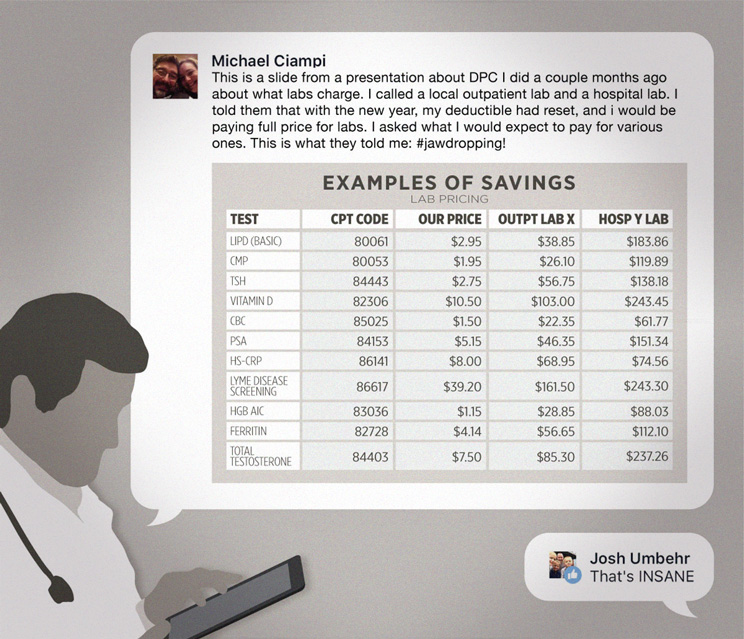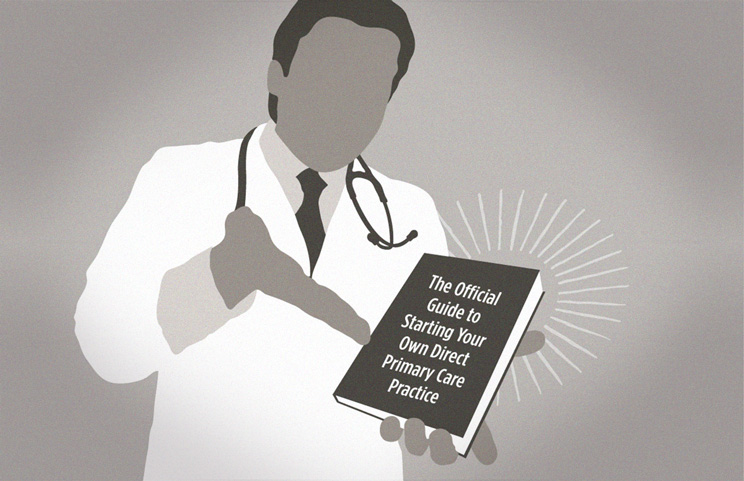If you fall into any of the following categories, you absolutely MUST keep reading because no matter what is preventing you from taking the next step with Direct Care, there’s a solution. We’re in the mood to break down some walls. At the end of this two-part series, you will be left with nothing but a clear path to DPC. To freedom of schedule. To career satisfaction. To happy patients. And possibly to more money than you make right now. We could go on and on… Anyway, lets’ see if you fit the bill. If one of these describes you even a little bit, perk up your ears and let the rest sink in.
Retirement Can’t Come Soon Enough. You’ve Had it Up to Here.
The days of sprinting from exam room to exam are behind you. At least you wish they were. The list of rules you have to follow are getting longer by the day, and the amount of energy you spend trying to make sense of them all is getting ridiculous. You close your eyes and dream of the golf course. Or maybe a book and your La-Z-Boy. You long for the days ahead of enjoying your life again. Maybe you’ll volunteer at a local clinic just because you want to, that’d be nice. After all, helping others is part of who you are and you know retirement won’t make that go away. But this, all this nonsense about how many patients to see in a day or how to code a diagnosis so the insurance companies don’t throw a fit or the pressure to accept or not accept Medicare… this is chaos. You’ve had enough and you want out.
You’re a Seasoned Physician Facing Retirement, but You Love Your Job.
You’ve been in the field for a long time. Traditional healthcare has served you fairly well – you’ve learned to live with the paperwork and red tape. Despite the adversity you’ve faced for years, your patients love you and you love them right back. You’ve also mastered the 7 minute appointment; you are efficient and effective. Retirement has always loomed in the distance. It’s inching closer now, but hanging up your coat just doesn’t feel right. Healthcare is transforming into something you don’t even recognize, though, so you know something has to change. Secretly, you’ve always wondered what it would be like to do things your way, on your watch, at a slower pace.
You’re Mid-Career and Jaded by the System.
Residency feels like a lifetime ago and now that you’re in full swing with your career you realize it’s not at all what you thought. You spend the hours between sun up and sun down rushing from patient to patient (that sense of inadequacy is getting really heavy…), and then you’re resolved to tackling a mountain of paperwork in the hours after. You keep telling yourself this will get better once the wrinkles of the ACA get ironed out, or once the MCRA, HIPAA or ICD issues have been resolved, or maybe even once the new administration gets settled in. It feels like you’re in a holding pattern. Rush frantically through the day, and then wait for the dust of traditional healthcare to settle. More pressing, you’re still waiting to get into the groove of life where you can actually enjoy your work and your family. You’re starting to lose hope that it will ever really happen. Read more





